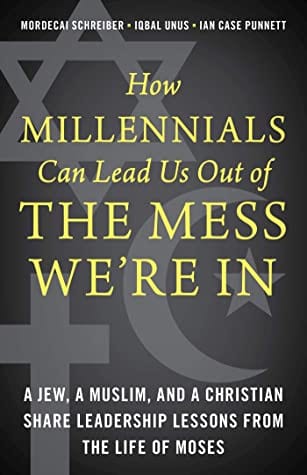Growing up evangelical–and trained in evangelical theological contexts–I was often warned that universalism is a distortion of the gospel of Christ. If we do not definitively declare that salvation comes only through the conscious acceptance of Jesus Christ as Lord in this life we are in danger of diminishing the message of the cross, the power of the gospel, and we are putting others (and perhaps even ourselves!) at risk of eternal separation from God. Furthermore, to flirt with universalism is to undercut the motivation for mission. If it’s that easy–if in the end all might be saved–and if this life is not the only shot we get, why evangelize? Why sacrifice one’s life or resources for the cause?
Lesslie Newbigin, himself a missionary in India for 30 years, explores–however cautiously-this question in The Gospel in a Pluralist Society. In a chapter called The Logic of Mission, he writes:
In this sketch of the logic of mission, it is obvious that the center of the picture is not occupied by the question of the saving, or the failure to save, individual souls from perdition. That question has dominated Protestant missionary thinking at many times and places. Clearly it cannot be left out of the picture, but I do not find that in the New Testament it occupies the center. If this were the central question, St. Paul could not have said that his work in the Eastern Roman world was finished. However many local churches had come into being through his ministry, only a tiny minority of those who had died during the years of his ministry had died as Christian believers. If this is the criterion by which missions are to be judged, then plainly they have been and still are a colossal failure. Not only today, but through all the centuries, the great majority of human beings who have died have died without faith in Christ. The missionary calling has sometimes been interpreted as a calling to stem this fearful cataract of souls going to eternal perdition. But I do not find this in the center of the New Testament representation of the missionary calling. (124-125).
For Newbigin, the motivation for mission is to join in the story of God in Christ and to share that story freely, both in word and in deed. As for the results and as for the question of salvation (who is saved, who is not, or whether all might be), we must remember the eschatological character of the Christian gospel. As Newbigin also says:
The center of the picture is the eschatological event in which the fathomless depths of God’s wisdom and grace will be revealed. His ways are inscrutable and his judgments unsearchable. He has consigned all [people] to disobedience in order that he may have mercy on all (Rom. 11:32-36). Until that day none can share in God’s perfection. Until that day, we are all on the way.
And again, Newbigin clarifies that the center of the gospel message is not one about individual salvation or of eternal perdition. And then he gets specifically to our question: Why mission, if salvation is not necessarily contingent upon hearing and accepting the message in this life?
The one who has been called and loved by the Lord, the one who wishes to love and serve the Lord, will want to be where he is. And where is is on that frontier which runs between the kingdom of God and the usurped power of the evil one. When Jesus sent out his disciples on mission, he showed them his hands and his side. They will share in his mission as they share in his passion, as they follow him in challenging and unmasking the powers of evil. There is no other way to be with him…the Church’s mission began as the radioactive fallout from an explosion of joy. When it is true to its nature, it is so to the end (127).
Newbigin does not come out here explicitly on the side of a a universalism, though I see hints of a “hopeful universalism.” But it’s easy to see here how the logic of mission in no way depends upon exclusivism, which has at the center a “holy and just God” who makes unflinching demands and gives only “one shot” (if a shot at all) to accept the bargain, the arrangement. Instead, the message here is of a God of love (let’s even say “holy love”) who reaches out into the world on its behalf and for its good, and inviting us to join the mission of reconciliation and healing. That’s a gospel that counts as “good news.”











